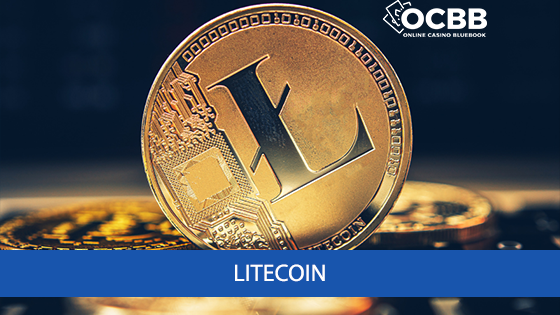 Litecoin Cryptocurrency
Litecoin Cryptocurrency
Welcome to the exciting world of Litecoin! In this article, we’ll take you on a thrilling journey into the realm of Litecoin, a type of cryptocurrency that has been making waves since 2011. Get ready to explore its history, learn about Litecoin mining, discover the best wallets to store your coins securely, and compare it to its famous counterpart, Bitcoin. In the history section, we’ll delve into how Litecoin was created to improve upon Bitcoin, and how it has become one of the top ten cryptocurrencies globally. Then, we’ll dive into Litecoin mining, where you’ll learn about the complex mathematical problems involved in verifying transactions and the equipment needed for successful mining.
Next, we’ll guide you through the different types of Litecoin wallets available, from hardware to software and mobile wallets, ensuring the safe storage of your precious coins. You’ll also gain insight into the advantages and disadvantages of Litecoin, including its faster transaction times, larger coin limit, and robust security measures. Lastly, we’ll answer some frequently asked questions, such as how to purchase Litecoin, its regulatory status in various countries, its real-world applications, and its future roadmap and notable partnerships.
Key Takeaways
- Litecoin was created in 2011 as a digital currency to improve upon Bitcoin.
- Litecoin offers reduced transaction times and lower fees compared to Bitcoin.
- Litecoin mining involves solving complex mathematical problems to verify transactions on the network.
- Litecoin wallets are crucial for storing Litecoin securely, with options including hardware, software, and mobile wallets.
History
You’re about to delve into the fascinating history of Litecoin, a cryptocurrency that’s been on the scene since 2011. It all started with Charlie Lee, a former Google engineer who was keen on creating something better than Bitcoin.
In fact, you can think of Litecoin as silver to Bitcoin’s gold. That’s what Lee intended when he launched this digital currency in October 2011. He didn’t want to replace Bitcoin, but rather improve it. By tweaking the original source code, he managed to reduce transaction times and lower fees.
But there’s more to the history of Litecoin than just its creation. In 2017, Lee took an unusual step for a cryptocurrency founder – he sold all his Litecoins! He believed it was necessary for him to avoid any conflict of interest and ensure Litecoin’s success.
Today, thanks in part to efforts by the Litecoin Foundation (a non-profit organization founded by Lee), this digital currency is among the top ten cryptocurrencies globally! Its resilience and adaptability have made it popular with investors and crypto enthusiasts alike.
Mining
Mining this particular digital currency involves solving complex mathematical problems. As a litecoin miner, you’re essentially verifying transactions on the Litecoin network by cracking these codes. This process, known as proof-of-work, allows you to add new blocks to the blockchain.
With cryptocurrency mining, it’s a serious commitment that requires significant computational power and energy resources. But don’t let this deter you; many are attracted to Litecoin because it offers faster confirmation times than its counterpart Bitcoin.
As for the equipment needed for mining litecoin, ASIC (Application-Specific Integrated Circuit) miners are commonly used due to their efficiency and speed. However, they can be quite pricey so it’s important to consider whether your potential rewards outweigh the initial investment.
So, what happens after mining? Well, once you’ve successfully added a block to the blockchain, you’ll receive a reward in Litecoins. This is your incentive for maintaining the integrity of the network. Remember though that over time, these rewards halve in an event called ‘halving’, which occurs every four years or so.
Wallets
After you’ve secured your digital coins through mining or more commonly purchase, it’s crucial to store them in a secure wallet. Now, you’re probably wondering what options are available for storage. Litecoin wallets should be high on your list if you’re dealing with litecoin cryptocurrency. These specialized wallets offer a safe haven for your precious coins.
Each of these wallets has its own unique features and security measures. You’ll find hardware wallets that provide robust security by keeping your litecoin offline and away from potential hackers. There are also software wallets which keep your assets online but still maintain decent security levels.
In essence, the choice is yours as to which type of wallet you prefer. It’s all about striking the right balance between convenience and safety. If mobility is key for you, mobile wallets might be the best fit as they allow access to your cryptocurrency at any time.
Remember though, no matter how secure these wallets claim to be, it’s essential not to stash all your eggs in one basket. Diversifying storage locations minimizes potential risks.
Litecoin vs Bitcoin
It’s important to understand the differences and similarities between these two digital currencies, as each has its own advantages and disadvantages. Litecoin (LTC) and Bitcoin (BTC) are both decentralized cryptocurrencies, but they’re not identical.
When you compare litecoin vs bitcoin, you’ll find that LTC was created to improve on BTC’s limitations. For starters, LTC transactions are processed faster than those of BTC. This means that if you’re making a payment with LTC, it’s likely to go through in less time than if you’d used BTC.
On the downside, while BTC is widely accepted and recognized globally, LTC doesn’t have as broad acceptance. So if you’re planning on using your digital currency for everyday transactions like buying coffee or shopping online, BTC might be more practical.
Another key difference lies in their total supply limit. While bitcoin has a cap of 21 million coins, litecoin quadruples that amount with an 84 million coin limit.
In terms of security though, both offer robust protection against frauds and hacks due to their cryptography-based system. However, remember it’s crucial to keep your wallets secure regardless of the cryptocurrency you choose.
Advantages
You’ll appreciate the quicker transaction times and larger coin limit when dealing with this digital asset, despite its lesser recognition compared to others.
Litecoin’s primary advantage is its speed. You’ll see transactions processing four times faster than Bitcoin, one of the top-tier cryptocurrencies. This speed makes a world of difference in high-volume trading and everyday transactions alike.
Next up is Litecoin’s impressive coin limit. It’s designed to produce 84 million coins—four times as many as Bitcoin—and that’s not just for show. More coins mean smaller individual coin value, making it more affordable for you to invest, purchase or trade.
Lastly, let’s not forget about security. The Scrypt algorithm used by Litecoin discourages large-scale attacks by making them too expensive for hackers.
Disadvantages
Despite its benefits, there are some drawbacks you should consider before diving into this digital asset market. As with any other cryptocurrency, Litecoin has its fair share of disadvantages.
First, it’s essential to understand that the value of Litecoin is extremely volatile. It can increase or decrease drastically in a short period, which creates an unpredictable investment environment. You might be on cloud nine one day and down in the dumps the next.
Second, despite being amongst the top cryptocurrencies, Litecoin doesn’t enjoy as much popularity or acceptance as Bitcoin. This limits your options when you’re looking to spend or trade your Litecoins.
Third, like other digital currencies, Litecoin transactions are irreversible once completed. If you accidentally transfer coins to the wrong address or fall victim to a scam, there’s no way to retrieve your funds.
Frequently Asked Questions
How Can I Purchase it and Where Can I Trade It?
First, find a reputable crypto exchange. After creating an account and depositing money, you can buy Litecoin. Then, trade it within the platform or transfer to another exchange.
What Is the Regulatory Status in Various Countries?
It varies: some countries fully accept it, others regulate its use, and few ban it outright. Always check local laws before investing or trading in cryptocurrencies like Litecoin.
What Kind of Real-World Applications Does it Have?
Well, you can use it for online transactions, like buying goods or services where it’s accepted. It’s also handy for peer-to-peer transfers without the need of an intermediary.
How Does the Future Roadmap Look Like?
It’s looking promising with plans for privacy enhancements, Lightning Network integrations, and other technical improvements. Don’t forget, the crypto market’s always volatile, so there’re no guaranteed outcomes.
Are There Any Notable Partnerships or Collaborations That Litecoin Is Involved In?
Yes, it’s partnered with various firms, including Travala.com and MeconCash. These partnerships aim to increase Litecoin’s usage in hotel bookings and as a withdrawal method at ATMs.
Are There Other Kinds Of Cryptocurrencies That Can Be Used For Gambling?
Absolutely, two other popular forms are Ethereum and Bitcoin.

 Litecoin Cryptocurrency
Litecoin Cryptocurrency